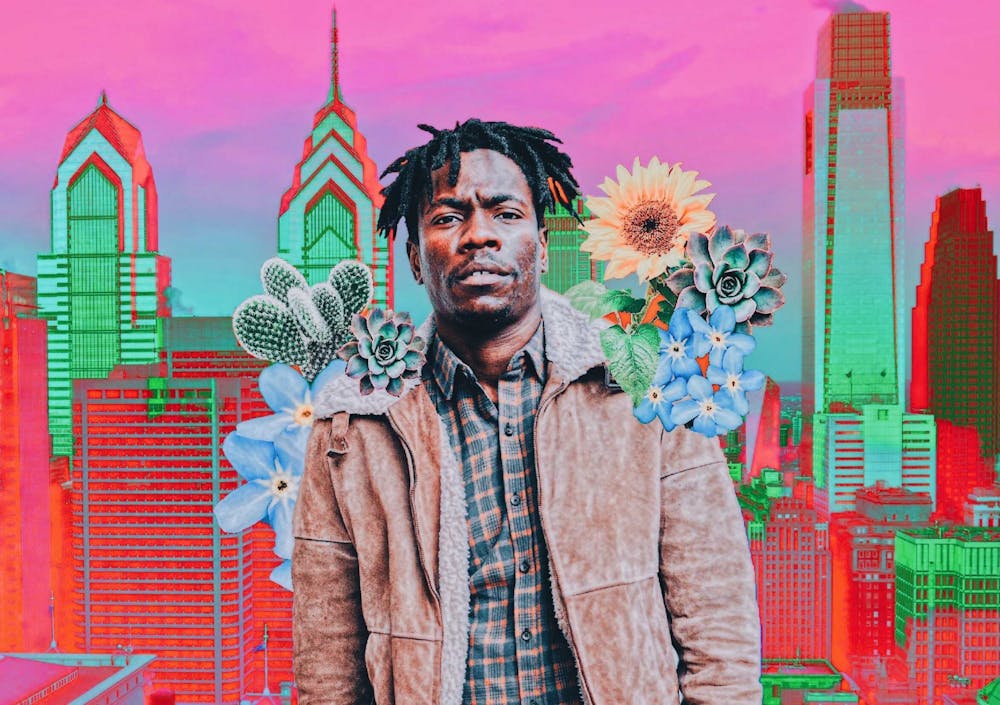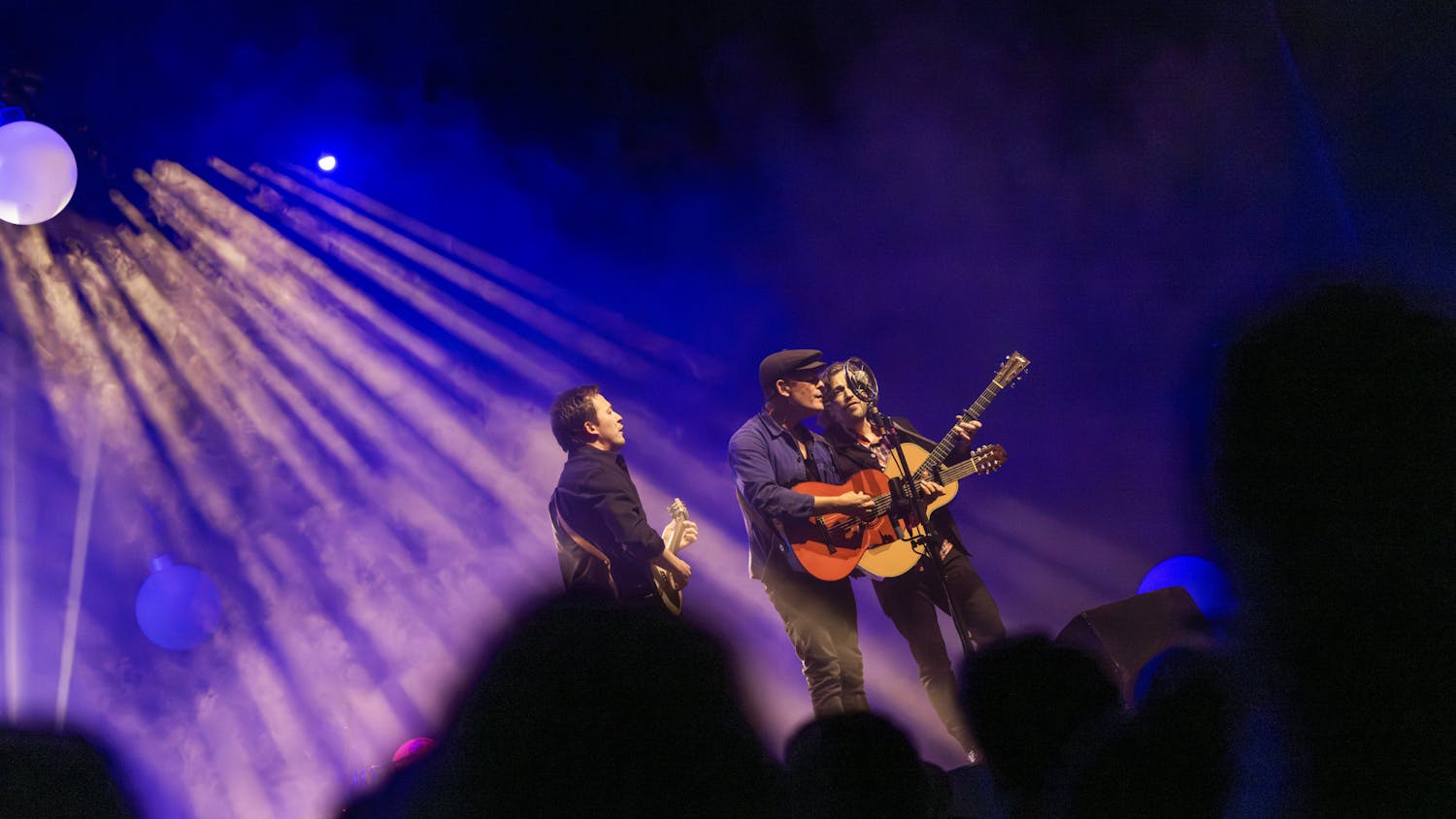Andre Brown never expected to see his name in print. Though he knew he possessed a natural flair for writing, Andre didn’t think that he would have an audience for his work.
The piece, written for a journalism class that he took during his junior year of college, explored the phenomenon of “cuffing season,” where single people tend to seek out romantic relationships in the colder months, usually starting in October and ending around Valentine’s Day. Andre’s professor, thoroughly impressed, submitted it to the school’s student–run newspaper. The next thing Andre knew, he was the author of a story that would be seen by people other than just him and his professor.
Yet, his whirlwind of an experience wasn’t enough to get Andre, who was planning to pursue a sports–related field, interested in journalism.
It wasn’t until eight years later, when the COVID–19 pandemic forced the world into lockdown, that a 28–year–old Andre began to write seriously for the first time. What started as infrequent contributions to Uptown Standard, his friend’s newspaper and a hub for Black–centric news in Northeast Philadelphia, quickly turned into founding the groundbreaking Black Philadelphia Magazine in January 2021. The publication, available both online and in print, covers Philadelphia’s arts and culture scene, as well as relevant news coverage, all from a Black perspective. By supporting everyone from up–and–coming artists to small business owners, Andre hopes to “highlight the parts of the city that currently might not be on a platform to be discovered.”
The arc of Andre’s life is centered on Philly culture, from Eagles games to city politics to Black Lives Matter. This past summer, Andre marched with thousands of protesters during racial justice protests, and he also volunteered with voter registration drives before the presidential election.
“I love Philadelphia. When I look at Philadelphia, I don’t see what [former President Donald Trump] sees, that ‘bad things happen in Philadelphia,’” Andre says. “The city of Philadelphia to me will always represent a place where everyone can come together and create beautiful things.”

Still, Andre acknowledges that growing up in Philadelphia wasn’t perfect. From an early age, Andre noticed the systemic inequalities that surrounded him. Many neighborhoods in Philadelphia are shaped by gentrification and redlining, which disproportionately harm the city's Black population—40% of Philadelphia's total population. According to the City of Philadelphia’s Office of the Controller, racial segregation in the city is strongly correlated with poverty, lack of educational and job opportunities, and urban violence.
“I remember being scared to go home at times. I remember being stopped and frisked by the police. I remember people close to me getting beat up and killed,” Andre says. “This is not a beautiful life to live, but I lived through it, and my job now is to help spread hope for others.”
After attending high school at Philadelphia Military Academy, Andre left behind the city that he called home. He spent three and a half years at Lock Haven University, a small, quiet, predominately white institution in Central Pennsylvania.
“It was different, being in the middle of nowhere, but I think I’ve always been able to navigate through places that I don’t feel like I belong,” he says. However, that didn’t mean he wanted to stay. “The main reason that I graduated early is because I just felt so motivated to leave. I didn’t want to be there anymore,” he adds with a laugh.
Although his degree was in sports administration, Andre took multiple electives related to journalism. He became increasingly interested in the field and began dedicating large amounts of time to interviewing, writing, and editing his articles for class. Yet even though he enjoyed his classes, he didn’t think much of making a career out of it—it was just one of his many passions.

After graduating from Lock Haven in 2014, Andre was drawn back to Philadelphia, where he began coaching track and field at Martin Luther King High School. He quickly rose through the ranks and became the youngest head coach in the School District of Philadelphia.
Then came the pandemic.
The isolation of quarantine gave Andre time to reflect on his disparate interests. While he still worked part–time as a coach, Andre says he often found himself sitting at home, wanting more. “I love coaching, and I think I’ll always play a part in influencing the youth somehow, but I also love acting. I love music. I love writing. I love making people happy," he says.
One by one, Andre began pursuing these side passions. He appeared in a few small movies and TV shows, released music under the name Black Noir, and reached out to his friend James Williams, publisher of Uptown Standard, to see if he could help out with writing stories.
“I read one of [James’] stories about MLK High School, the school I worked at, and I saw tons of errors in it—a bunch of the names of the kids were spelled wrong,” Andre recalls. “I was immediately like, ‘Let me help and make this story better.’”
After editing the article, Andre continued to contribute to Uptown Standard, where he mainly covered Philadelphia City Council. In his own words, he went from “writing one story to writing four stories to writing a whole newspaper.”
A big turning point for Andre’s budding career in journalism occurred on Juneteenth. He became one of the first reporters to interview a resident of a tent encampment on the Benjamin Franklin Parkway, where hundreds of homeless people lived, protesting the lack of affordable housing for Philadelphia’s growing homeless population.
Andre says that he was able to get through barriers that other reporters couldn’t, since residents were tense about talking to mainstream media. Many Black Americans feel a distrust towards journalists who cover Black issues, as a result of seeing their stories often misrepresented.
He eventually found himself inside the camp, surrounded by around 300 other residents, protesters, and volunteers. Uptown Standard was the only local paper able to interview a resident of the encampment.

“By then, my editor saw what I could do and trusted me, and he said, ‘You want a magazine? You got it.’ And that’s pretty much how Black Philadelphia was born,” Andre says.
To Andre, the goal for his magazine isn’t to get “The New York Times–big” or “The Inquirer–big,” but rather to create a time capsule for the next generation by sharing stories that would otherwise be lost.
“We might not be able to get the biggest people in the city to talk to, but we’ll get the people that someone can read about and think, ‘Wow, they came from the same neighborhood I came from.’”
Andre saw the disconnect between different areas of the city as an opportunity to shift the narrative and change what stories were being told—the basis for what would eventually become Black Philadelphia Magazine. With a balance of entertainment and education, the magazine is “a magazine for people who live in Philadelphia, told through the voices and perspectives of the Black community.”
“If you live in the city and you don’t understand the Black culture that you’re surrounded in, it’s going to seem scary to you. It’s like going to a place where you don’t know anything,” Andre says. “I thought if I could say, ‘Here [are] the good things that happen in places that you don’t go [to],’ maybe people will realize they do want to visit there or support businesses there.”
It took a few months for the magazine to find its voice. It wasn’t until the first week in December that Andre sat down and began working—with “zero stories, zero pictures, zero [anything].”
By early January, the magazine’s first issue was out.

The hardest part of building a magazine from scratch, Andre says, is convincing people that it’s “legit.” To build credibility to readers, collaborators, and featured artists, Andre knew that he needed to secure a strong cover story.
That is exactly what he found in Jimmy DaSaint, a Philadelphia–based author of the Black Scarface series, as well as many other urban fiction books, who found his passion for writing while serving time in prison.
“As soon as we got Jimmy DaSaint, the floodgates opened. People started reaching out to us, instead of us reaching out to them. All I had to do was reply,” Andre says, adding that he responds immediately to every email that he receives.
At a time when keeping up with mainstream media outlets can be more overwhelming than educating, Andre says Black Philadelphia Magazine is a much–needed escape, spreading stories of hope that lie underneath the constant negativity of the news cycle. In celebration of Black History Month, the upcoming February issue will highlight Black businesses around the city.
"You have to document this time because there’s gonna be a time when we don’t exist, but our future will,” he says. “We’re gonna have to tell, how did these people have so much hope? How did these people really live through all this destruction?”
Although Black Philadelphia is at the forefront of Andre’s priorities at the moment, he's uncertain about what lies ahead—whether it’s fulfilling his dream of starting a podcast or pivoting from coaching to teaching students in a classroom setting. What he does know, however, is that he wants to be “helping and encouraging youth at some level." For now, Andre is channeling his drive to make an impact through the magazine.
“How many people have thought about creating something like [Black Philadelphia Magazine], but didn’t have the resources or the initiative? I’m in a position where I’m lucky enough to actually do it,” Andre says. “It’s not for me anymore. It’s for the people. That’s why I’m so motivated to continue and grow.”





